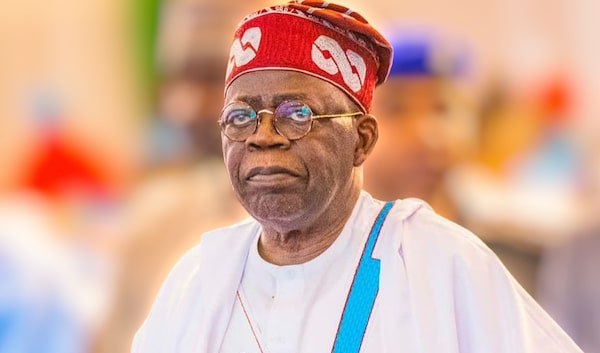JUST IN: Tinubu receives German Chancellor Scholz at Aso Rock Villa

JUST IN: Tinubu receives German Chancellor Scholz at Aso Rock Villa
President Bola Tinubu, on Sunday afternoon, received the German Chancellor Olaf Scholz at the Aso Rock Presidential Villa, Abuja.
Scholz, who arrived at the Villa’s forecourt at 03:40 pm (local time), is visiting Nigeria for the first time since assuming office in December 2021.
It also begins his two-day working visit where he is scheduled to meet business leaders in Lagos on Monday, October 30.
Both leaders met at the 18th G20 Summit in India where the German helmsman told Tinubu, “We acknowledge the business-friendly reforms you have put in place. I am happy to inform you of my desire to visit you in Nigeria in October, which will allow us to carry forward these initiatives.”
He is the second European leader to visit the West African state since the Russo-Ukrainian War began in February 2022.
On September 7, 2022, Polish President Andrzej Duda met former President Muhammadu Buhari at the State House, expressing his country’s desire to increase energy imports from Nigeria.
The Russo-Ukrainian conflict has rekindled Europe’s interest in Africa’s energy market as EU nations seek alternatives to sanctioned Russian supply.
Barely a week before Scholz’s visit, the EU’s Commissioner for Energy in Nigeria, Ms. Kadri Simson, said the bloc is reinforcing its diplomatic relationship with its reliable Liquefied Natural Gas partners like Nigeria in the short-term to enable it to bridge the gas supply gap in the continent that resulted from the War.
In an interview with Sunday PUNCH_ published October 29, the German leader said his country has “a considerable demand for natural gas and, going forward, hydrogen to fuel its economy and energy transition. Concrete amounts should be agreed on in negotiations between Nigerian gas producers and German gas traders.”
Until recently, African energy projects had been shunned due to costs and climate change concerns, industry experts said.
Sunday’s meeting continues over six decades of diplomatic relations between the two countries, sustained by high-level visits dating back to 1978 when then-Chancellor Helmut Schmidt visited Nigeria.
In November 2008, German President Horst Koehler was received by President Umaru Yar’Adua in Abuja.
Also, immediate past Chancellor, Angela Merkel, was the first head of state outside Africa to visit Nigeria after Goodluck Johnathan’s election in 2011. She returned in August 2018 to meet his successor, President Buhari.
In 2016, then-President Christian Wulff’s visit to Nigeria led to the signing of several agreements in areas such as energy, trade and culture.
However, the visits have not been one-sided.
Nigerian leaders have also appeared in Germany. In November 2003, then-President Olusegun Obasanjo visited the European giant.
President Jonathan also visited Germany for a three-day working visit in April 2012.
In his first trip to a non-Africa state, President Buhari attended the 41st G7 summit in Elmau.
Within that period, the two nations have engaged in several bilateral agreements and collaborations, especially in energy and power. Of prominence was the 2019 deal President Buhari signed with German energy company Siemens to generate at least 25,000 megawatts of electricity for Nigeria’s electric grid by 2025.
Nigeria has also leveraged Germany’s expertise in renewable energy, especially solar and wind energy, benefiting from technology transfer and capacity building.
In 2022, Nigeria exported €1.9bn euros of oil to Germany, according to the United Nations COMTRADE database on international trade. Germany also exported goods to Nigeria, which was valued at €1.1bn euros, with machinery and electronic components being the highest imports.
Scholz will declare open a Nigeria-German Business Conference organised by the Nigerian-German Chamber of Commerce in Lagos on Monday.